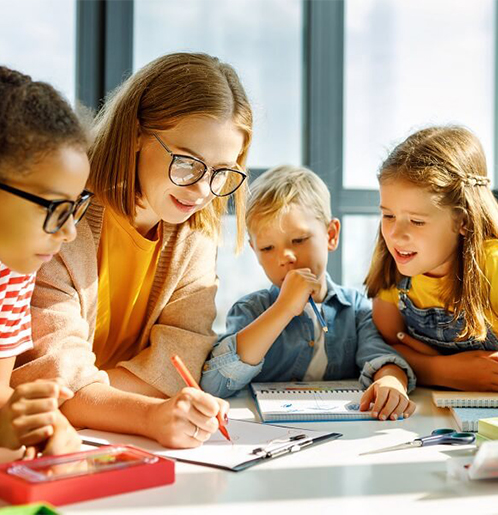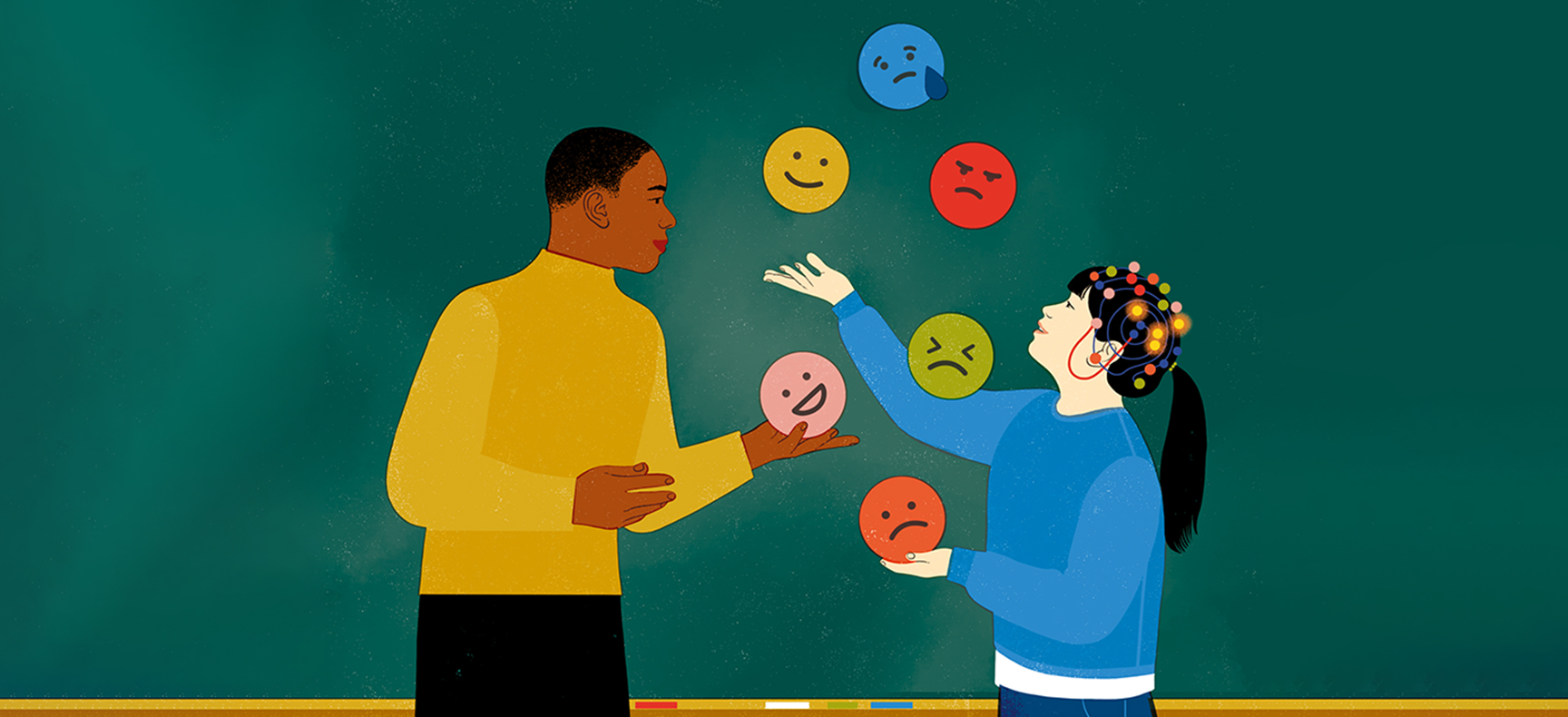What Is Social-Emotional Learning?
Social-emotional learning refers to the process through which individuals develop self-awareness, manage emotions, build healthy relationships, and make responsible decisions. Our education innovation summit brings attention to how, in the context of education, SEL serves as a framework for helping students navigate both academic and life challenges with emotional intelligence and interpersonal skills.
Social-emotional learning in the classroom is not about adding more to an already packed curriculum. It’s about integrating emotional and social skill-building into everyday learning. From group discussions to conflict resolution exercises and reflective practices, SEL promotes classroom environments where students feel safe, heard, and ready to learn.
For educators and school leaders, social and emotional learning is proving essential. It can reduce behavioral issues, improve academic performance, and support student well-being. Whether you're designing school culture, supporting teacher development, or building edtech tools, understanding SEL is no longer optional. It’s foundational.

Why SEL Deserves Attention Right Now
The growing need for social-emotional learning in the classroom has become more apparent over the past few years. As students and teachers return to post-pandemic classrooms, the emotional landscape is more complex than ever.
Here’s why this theme matters now:
➔ First, schools are dealing with rising rates of anxiety, depression, and stress among students. SEL helps schools respond with empathy and structure.
➔ Second, a growing body of research confirms the link between social and emotional learning and academic success. SEL is no longer seen as a soft skill. It is a core skill.
➔ Third, teachers themselves are overwhelmed. SEL isn’t just for students. Educators benefit from emotionally supportive school environments, too. Professional development that includes SEL strategies can reduce burnout and improve retention.
This theme asks a pressing question: How can schools become not just centers of knowledge, but spaces for emotional growth, resilience, and community?
Start Exploring These Ideas And Tools
These books, podcasts, and tools can help you build a stronger foundation before diving into the SEL sessions. You don’t need to be an expert, just open to learning how emotions shape learning.
Books
These insightful reads are perfect for those attending our education leadership summit, offering fresh perspectives on how emotions influence learning, leadership, and resilience. Each title provides practical ideas grounded in research and real-world applications.
- Permission To Feel – Marc Brackett
A compelling case for making emotions central to education and leadership. Brackett introduces the RULER framework, offering strategies for recognizing, understanding, and managing emotions to create healthier learning environments. - The Whole-Brain Child – Daniel J. Siegel And Tina Payne Bryson
A neuroscience-based guide to understanding child behavior and promoting resilience. The authors provide 12 practical strategies for integrating brain science into everyday parenting and teaching. - Emotions, Learning, And The Brain – Mary Helen Immordino-Yang
Examines the science behind why emotions matter in education and how to apply it in practice. Immordino-Yang bridges research with classroom examples, showing how emotional well-being supports academic success.
Watch & Listen
Get ready for our education summit by exploring these talks, podcasts, and webinars focused on social-emotional learning (SEL). They offer practical ideas and research-backed strategies you can bring into summit discussions and classroom practice.
- Brené Brown On Vulnerability And Leadership – TED Talk
Brené Brown shares the power of vulnerability as a catalyst for authentic leadership, trust, and connection—core qualities in building emotionally intelligent classrooms and communities. - The Science Of Happiness – Greater Good Science Center Podcast
Hosted by the Greater Good Science Center at UC Berkeley, this podcast features research-based tips on empathy, resilience, and emotional regulation. Episodes blend expert interviews with actionable practices. - CASEL Webinar Series
A collection of webinars from the Collaborative for Academic, Social, and Emotional Learning (CASEL), featuring experts discussing SEL implementation, equity, and policy in diverse educational contexts.
Try
Explore these tools before our education conference to see SEL in action—helping you contribute informed ideas to conference conversations on emotional well-being in schools.
- Mood Meter App
From the Yale Center for Emotional Intelligence, this app helps users recognize and label emotions, promoting self-awareness and emotional regulation in daily life. - Peekapak
A story- and game-based learning platform that builds SEL skills like empathy, collaboration, and respect through interactive modules for students. - ClassDojo's SEL Tools
Used by teachers to encourage mindfulness, kindness, and student reflection through digital engagement.
Exploring these will help you engage more deeply with the sessions and bring fresh strategies back to your school or organization.
Your Questions, Answered
Q1. I already teach academic content. Will SEL add more work?
Q2. Will the sessions include practical tools I can use right away?
Yes. From lesson plans to behavior strategies and tech tools, these sessions featured at our upcoming education summit are grounded in real-world examples and immediate takeaways.
Q3. What if our school doesn’t have a formal SEL program?
That’s okay. The sessions are designed for schools at all stages. Whether you’re starting from scratch or refining an existing approach, you’ll find useful insights.
Q4. Is SEL effective across age groups?
Yes. SEL can be adapted for early childhood, elementary, middle, and high school settings. The sessions at our global education conference will highlight how different age groups respond to different strategies.
Q5. I’m not a teacher. Will this be relevant to me?
Absolutely. School counselors, principals, policymakers, and even edtech product designers can all benefit from understanding how social-emotional learning improves educational outcomes.
Bring Your Work To The Stage
Are you building a tool or program that supports social-emotional learning in the classroom? We want to hear from you. Apply to speak or contribute to our sessions and showcase how you’re helping students thrive socially and emotionally.
Get In Touch


